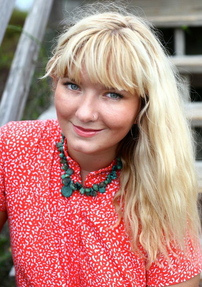 Today we are delighted to introduce Emily Pinto of Estrella de Mar. Founded in 2012 by Julie Savoie and Emily their story and brand mission are sure to inspire. Both Julie and Emily shared a passion for creating a socially and environmentally conscious fashion brand that would utilize the traditional skills of artisans in Guatemala. By creating more demand for the work of the artisans, Estrella de Mar aids in preserving their important cultural textile traditions. read our interview with Emily below. What inspired your brand mission?
Our mission is inspired by a love of handmade goods, traditional textiles and a commitment to ethical and sustainable production practices. The majority of our artisans in Guatemala are women. These women are survivors of the Guatemalan Civil War and face institutionalized discrimination and poverty. Despite these circumstances, they have resilient spirits and a deep love for their craft. By employing these artisans we can help them break the cycle of poverty and preserve their beautiful Mayan textile traditions. What have been the greatest challenges? Starting a business in a developing country is a challenge in itself. Occurrences such as roads being left un-passable due to lack of infrastructure make simple tasks more complicated. Going through the process of product design and developing a supply chain in another country means sometimes facing unexpected limitations and navigating an unfamiliar bureaucracy. These challenges have been valuable learning experiences though as Julie and I have had to become more flexible and more resourceful. What have been the greatest rewards? Being able to express my creativity, design a product and see it come to life is really wonderful. I also value the opportunity to advocate for ethical and sustainable business and production practices in the fashion industry. However the greatest reward is being able to give work to people that desperately need it. What life experiences have shaped who you are? When I was in college I did an internship with The Hemp Trading Company in London. It was inspiring to see a small business in the sustainable fashion industry from the inside. I saw that it is possible to have a positive effect on the world, even if you’re a small business. Living abroad that summer and having the opportunity to visit several countries was an enriching and enlightening experience. While people may come from very different places and cultures, we all have so much in common. When you can identify not just as a person from your own country, but as a member of the human family, then you want to do what you can to change systems that are unjust. Who do you admire and respect? My father is a small business-owner in my hometown of St. Augustine, Florida. He built his business from the ground up and is a true entrepreneur. I am in awe of his ingenuity and his work ethic. I would not have been able to contribute to Estrella de Mar as effectively without his example and advice. What advise do you have for aspiring Eco-Entrepreneurs? Julie and I are still on the road of making Estrella de Mar a success. I would encourage any aspiring eco-entrepreneurs to have perseverance because making your dreams a reality and changing the status quo is not an easy process. However, the world needs more people who will make sustainability a priority in their businesses and use business for good. Support Estrella de Mar and share their beautiful story and product. Photo credit: Jasmine Luoma Join the Ethical Fashion Academy and BEinSpain for an inspirational and intimate look at the art of Abigail Doan and designer Zaida Balmaseda this September 18th from 6:30-10 pm. Scroll below to explore the work of Abigail Doan and Balmaseda. Click here to RSVP Abigail Doan Environmental fiber artist and writer, Abigail Doan, currently divides her time between NYC, Eastern Europe, and Tuscany. Her work as a fiber artist offers a unique view into the materials, methods, and life cycle of handmade textiles, slow fashion garments, and related environmental issues. Abigail's recycled fiber forms and land-based installation work has been featured on Art Cloth Text, Craftzine, LabforCulture, Landviews, Treehugger, Trendtablet – as well as in the New York Times, HAND/EYE Magazine, Surface Design Journal, The Natural Resource's Defense Council's OnEarth and the books, Fiber Art Today and Green Guide for Artists. She is an internationally exhibited artist and works to promote the preservation of textiles, natural resources, and cultural handcraft techniques globally. Her most recent curatorial projects include Fete for the Senses as reviewed on Trendtablet, (Re)Fashioning Fiber in NYC, and Fashioning Self and the Environment at the Textile Arts Center in Brooklyn. Residencies include The LAND/an art site in rural New Mexico as well as symposia and environmental art exhibitions with the United Nations Environment Programme and in museums and galleries internationally. A summa cum laude graduate of and former adjunct professor at Purchase College, State University of New York, Abigail also attended Princeton University and studied at The Center for Book Arts in NYC. She has organized art, textile, and design events globally and keeps visual journals and research archives at Lost in Fiber and Toolshedding. Abigail's website Zaida Adriana Goveo Balmaseda Born in Bayamón, Puerto Rico to Cuban and Puerto Rican parents, Zaida grew up in the countryside surrounded by horses and mango trees. Her mother and grandmother are master craftswomen who provided a household full of creativity where she developed an effervescent interest in the Arts. Zaida graduated from the Fashion Institute of Technology in 2011, after spending two years studying at POLIMODA in Florence, and the Politecnico di Milano, in Milan. She holds a BFA in International Fashion Design: Knitwear Specialization. Committed to ethical/sustainable practices, throughout the design/production process, Goveo Balmaseda worked with Auralis' and STUDY NY. A believer in quality vs. quantity, interested in research, and in exploring the realm between art and fashion. Zaida's mission is to emphasize the meaningful results we can obtain while using alternative methods to create unconventional, clothes/art that are beautiful and fair to everyone. She feels that going the extra mile can bring out surprising ideas and creative solutions to an industry that needs a new set of values. Zaida’s work has been exhibited at the MMXIproject (Tribeca Grand Hotel, NYC), Mittelmoda in Gorizia, Italy, the Ethical Fashion Show in Paris, France, The Green Fashion Competition during Amsterdam Fashion Week, and Fete for The Senses in NYC. She is about to begin an Artist Residency program at the Textile Arts Center in New York. Zaida's website. Carmen Artigas Carmen has worked in the fashion for nearly 20 years, most recently in sustainable design, consulting, and sourcing. Working in India in 1999 with artisan communities reviving endangered crafts and later developing a yoga line using certified organic cotton and natural dyes exposed her to the challenges of developing sustainable products. She currently teaches Ethical Fashion at the Fashion Institute of Technology and Parsons New School of Design in New York, and she dedicates her time to reevaluating the human and environmental cost of products, advocating for craftsmanship, and redefining “made-in” and “made-by”. about.me/carmenartigas A 15-year veteran of the publishing industry, Jasmin Malik Chua is the managing editor of Ecouterre.com, the leading website on sustainability and innovation in fashion. She has an M.S. in biomedical journalism from New York University, where she was a founding fellow of the literary reportage program, and a B.S. in animal biology from the National University of Singapore. In addition to stories published in online and print publications like Alive, Inhabitat,Plenty, The Huffington Post, and Sprig, Chua has been quoted as a green expert by such publications and outlets as The New York Times, BBC Radio, BusinessWeek, Newsweek, and People. www.ecouterre.com Francisca Pineda is the founder of the Ethical Fashion Academy, a community focused initiative that organizes eco-fashion events in New York City and a yearly hands-on Eco-Fashion Workshop in Costa Rica. She is the creative director for BHAVA, a luxury artisan-made cruelty-free footwear collection: conscious & cool with a dose of ingénue charm.
Francisca is also passionate about sharing what she has learned throughout her 15 year career designing apparel and accessories with the next generation of designers and teaches design through the Fashion Portfolio Academy, an online design education platform. 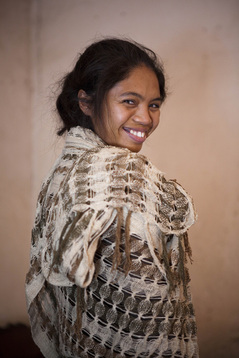 I recently had the pleasure of meeting Natalie Mundy who introduced me to the beautiful hand spun silk scarves made by Federation SAHALANDY. Located in a tiny mountain town in Madagascar, Sandrandahy, is made up of 7 silk/cotton weaving co-operatives and associations. Natalie first started working with Sahalandy through a volunteer project with the UN. However when her official duties in Madagascar were complete, her life had changed and although back in the US she has continued her work helping to spread the word about this amazing project of hope and empowerment. Each scarf is made of naturally dyed, hand-spun raw silk. The natural colors are subtle and sophisticated, and the unique weavings make each piece true one of a kind luxury. Meet Natalie and experience the beauty of the Sahalandy collection this holiday season at the Columbus Circle Holiday Market from Nov.28-Dec.24, daily from 10-8 pm. If you're interested in learning more about Sahalandy or volunteering with Natalie, contact [email protected] www.sahalandy.org KACHAMA- EXTRAORDINARY TEXTILE ARTIST visits NYC with her stunning hand weaving art from Thailand.9/4/2012 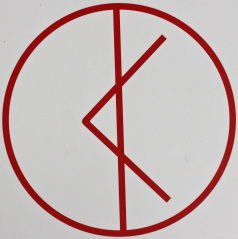 I recently had the honor of meeting textile artist extraordinaire Kachama. She shared her beautiful textiles with us at our recent Conscious Collaborations event. I then had the privilege of meeting her again the next evening at an open house hosted by Jeanne Golly. Kachama was kind enough to answer some questions and allow me to photograph some of her pieces. For decades Kachama has been using hand woven and natural dye techniques in her studio in the Chang Mai region of northern Thailand. The first time she went to the mountains to learn these ancient techniques almost every home had a loom and often the grandmother was the weaver. Since then the number of weavers has dwindled and those using natural dyes are even more rare. What are we losing? More than those of us who live a modern life can even begin to comprehend. Natural dyes are not just about gorgeous colors, but serve us with their medicinal properties as well. By studying with the tribes she learned so many of the subtleties like why it is best to dye indigo at night. She also spoke of a woman who healed her son's skin ailments by dyeing his clothes in natural tree bark dyes to protect his skin. As each generation loses interest in this history who knows what knowledge is lost. It has taken hundreds of years to pass down this information and the temptation to work in the city, often to sew at a fast fashion factory, is too great to stay behind with grandmother and weave. Conservation of cultural heritage is key in Kachama's mission. By re-weaving traditional hilltribe tapestries, both antiques and contemporary, inside her own creations Kachama hopes to preserve and promote the cultural legacy of Thailand’s mountain people. In her Reuse/Recycle/Replenish series exhibited in Tokyo, Kachama explores our everyday waste and manages the impossible by incorporating our modern day garbage into her work, creating a devastatingly beautiful landscape. Thank you Kachama, my conversation with you was inspirational and your work is exceptional. I have uploaded several photographs in full size so you can take your time to explore her work. Each piece takes months to complete, and is unique unto itself. Enjoy. For more information visit www.kachama.com |
Archives
November 2014
join us! Categories
All
|

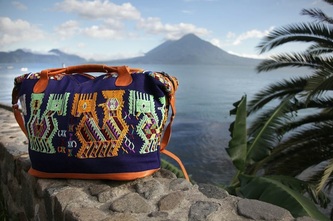
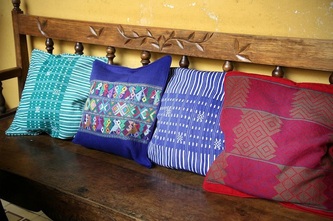
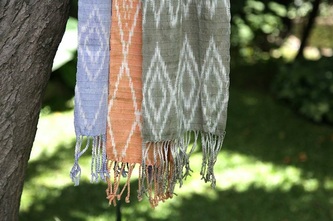
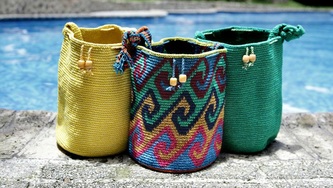
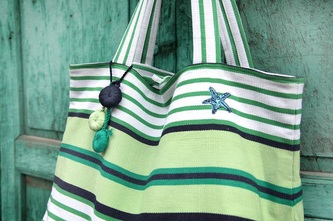
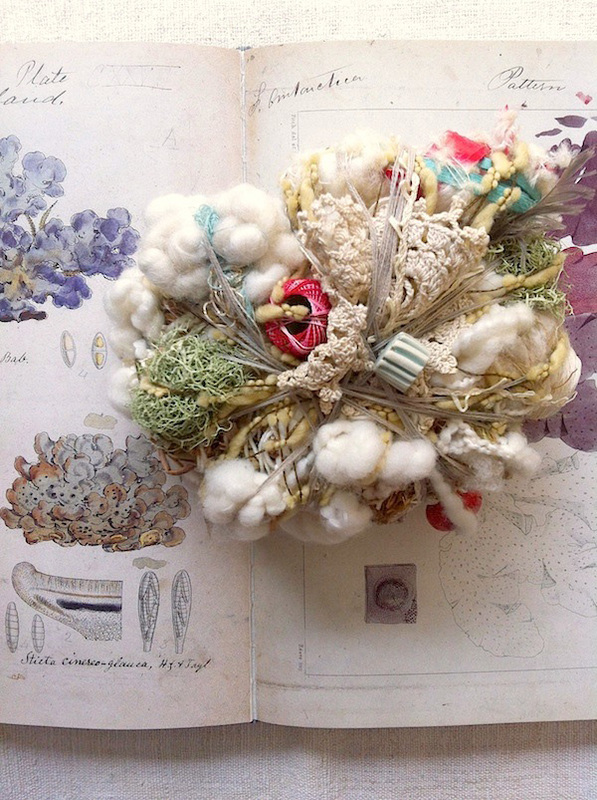
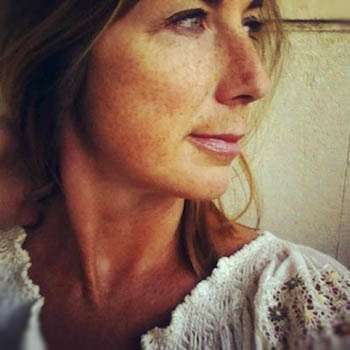

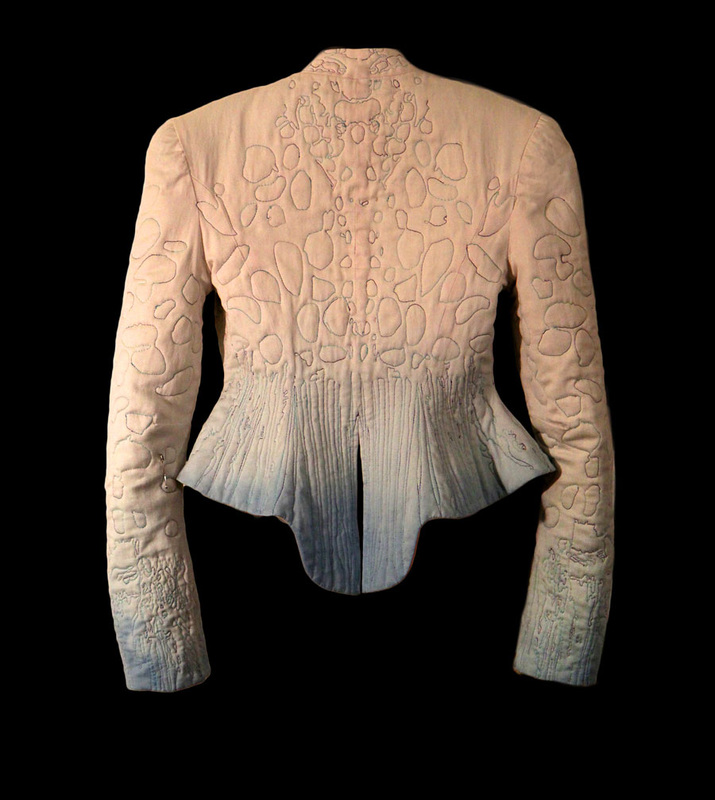
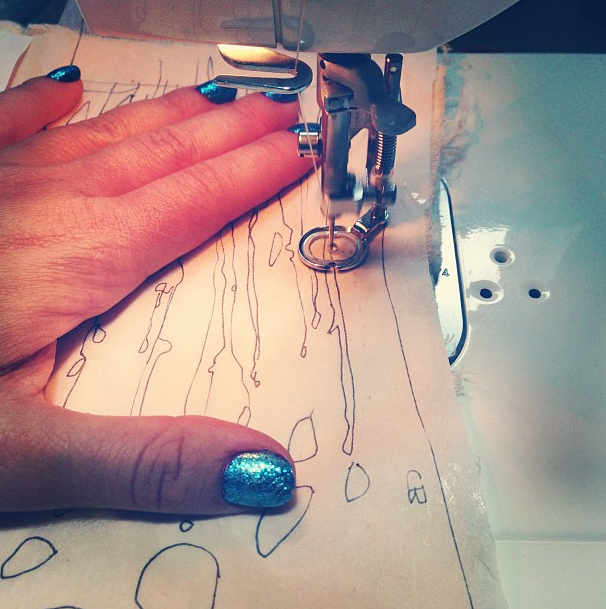
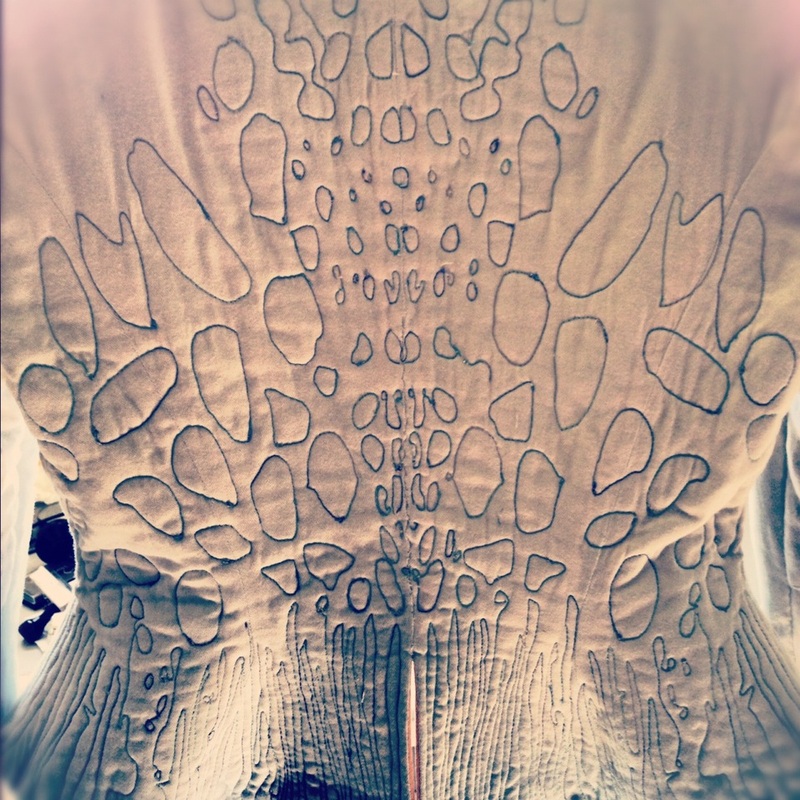
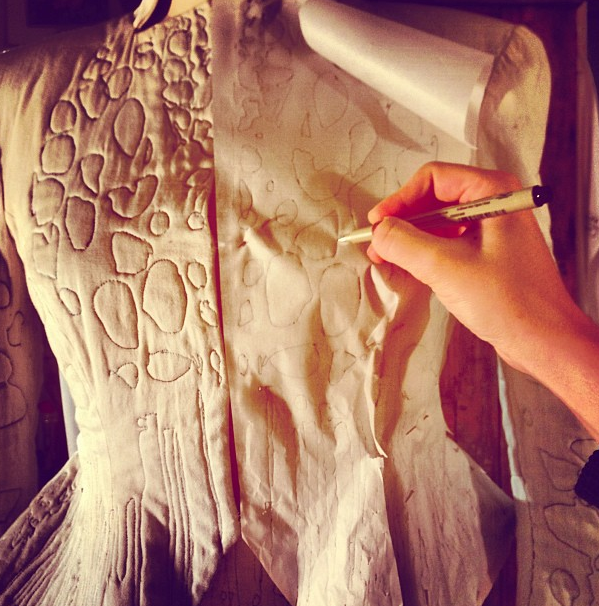
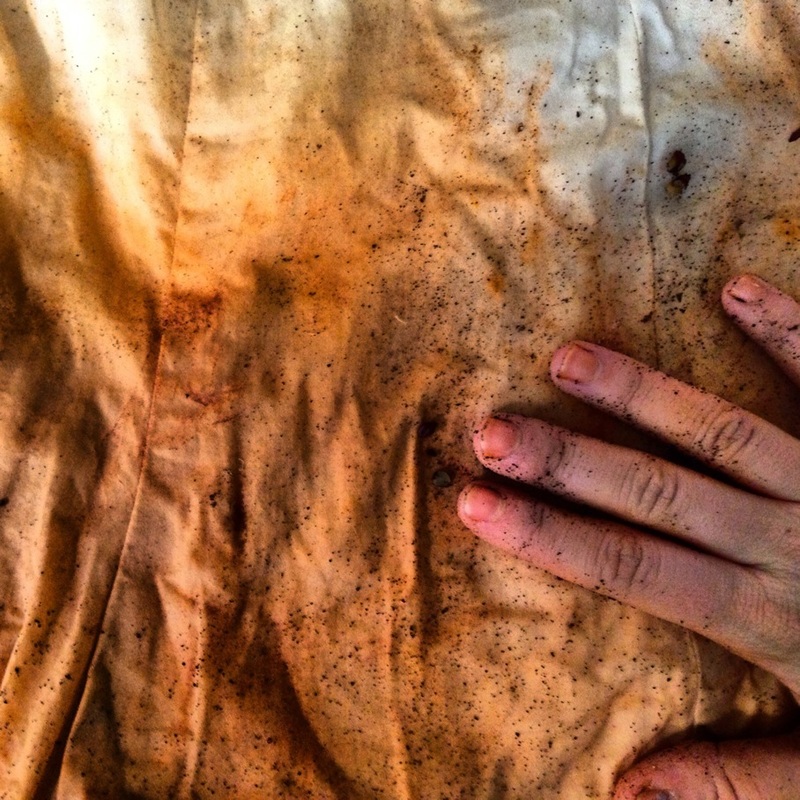
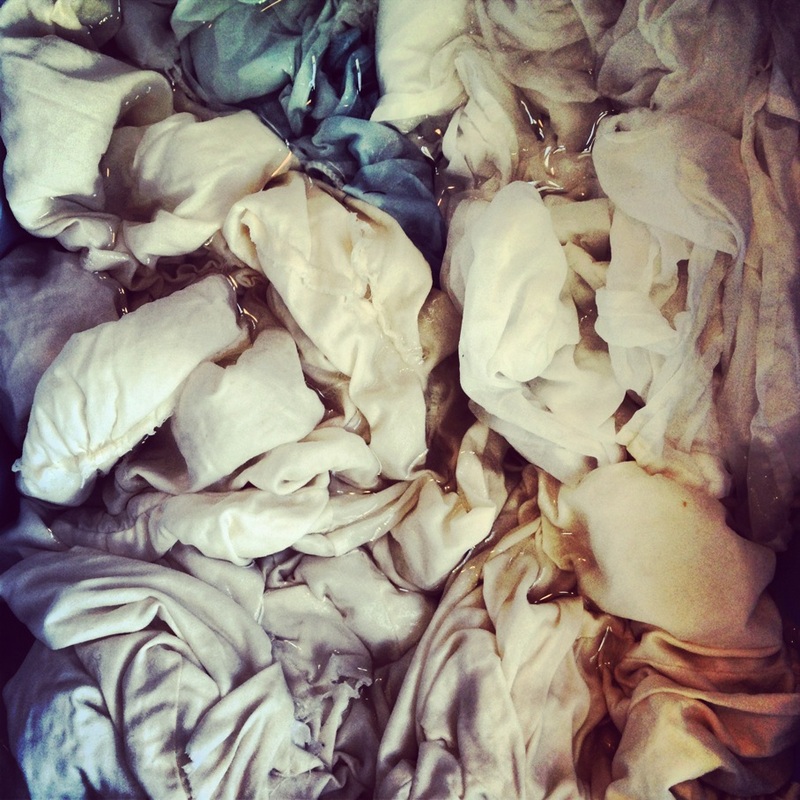
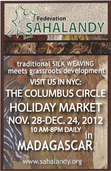
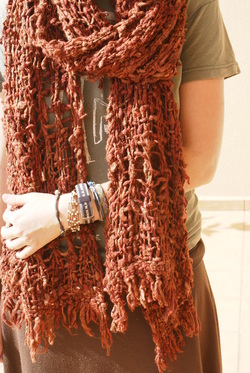
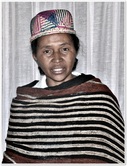
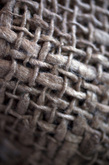


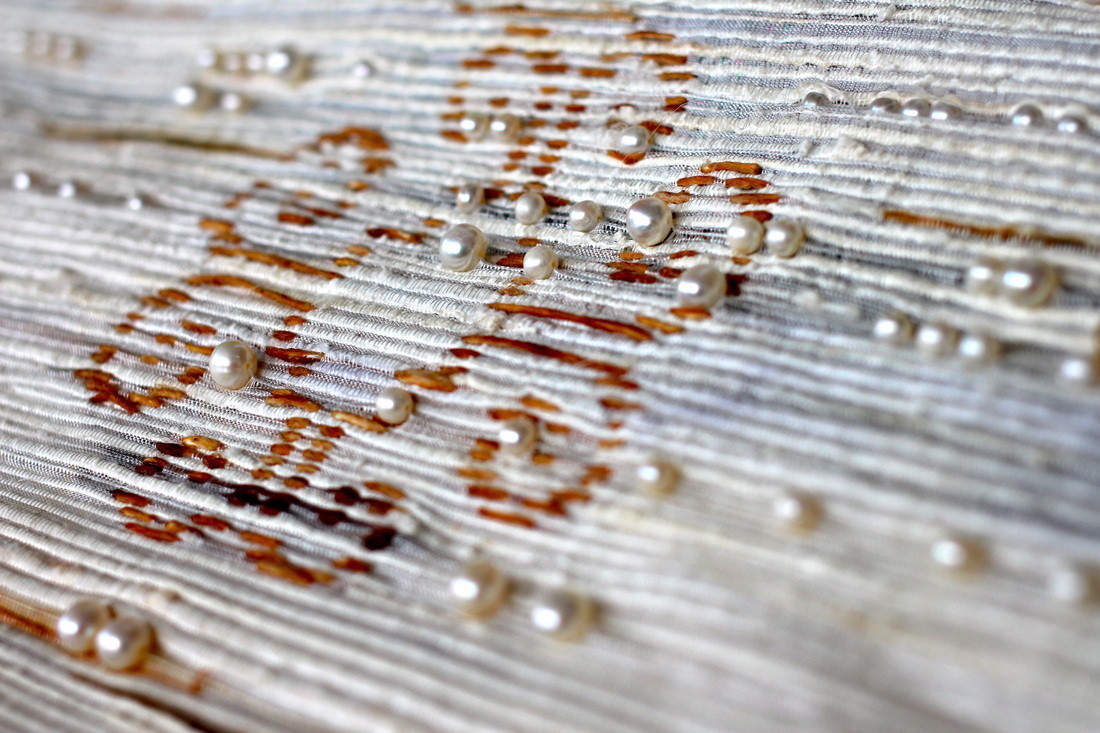
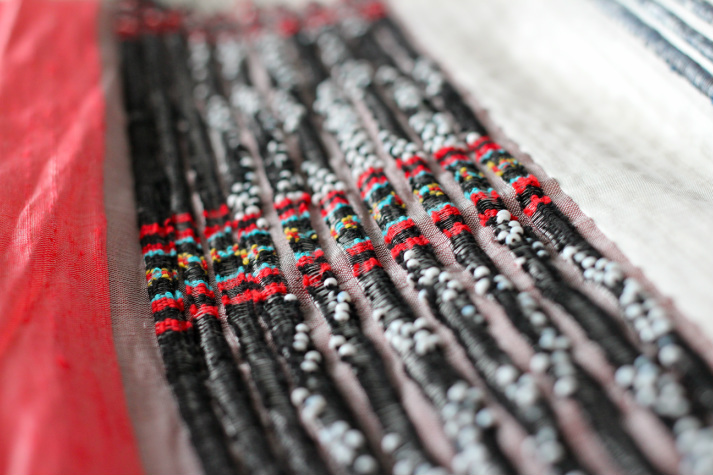
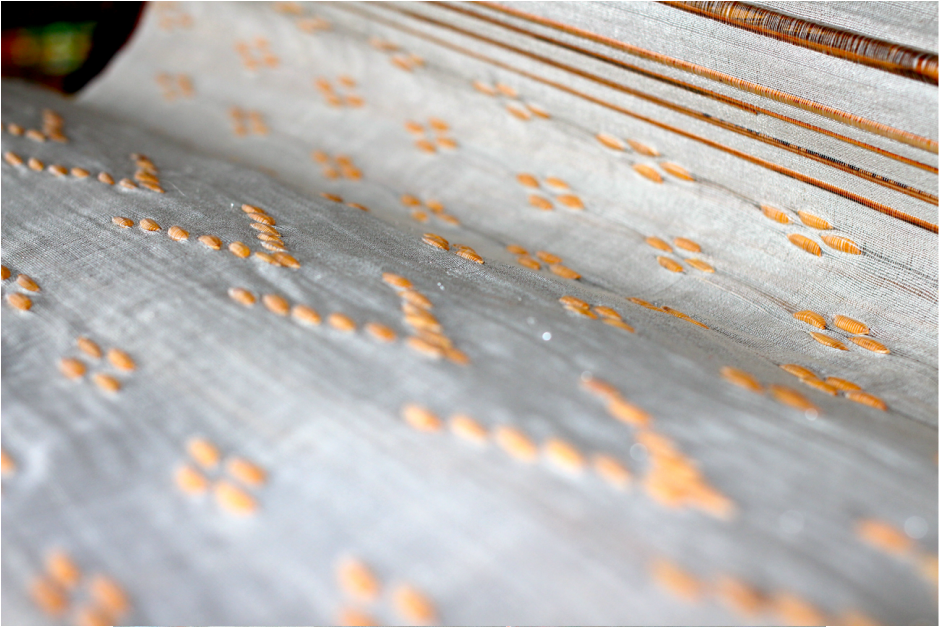
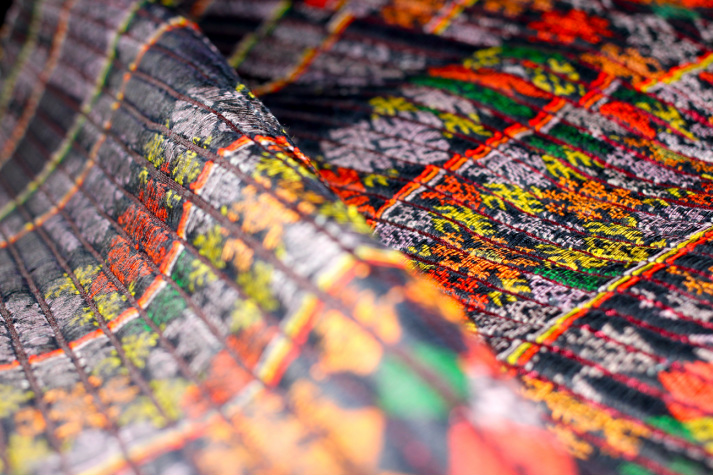
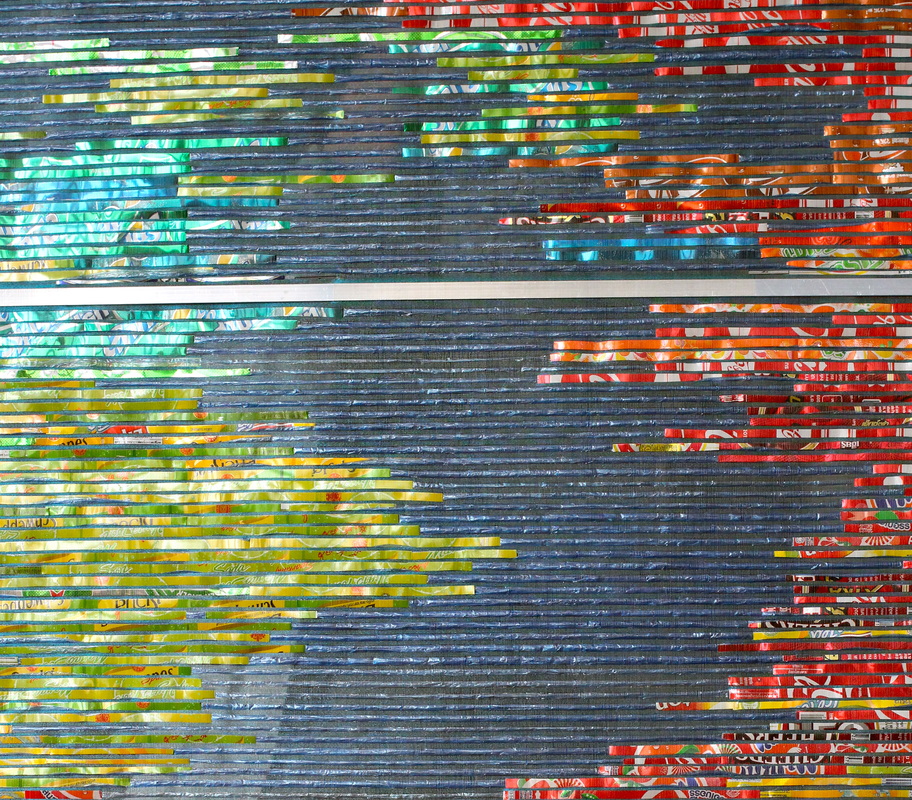
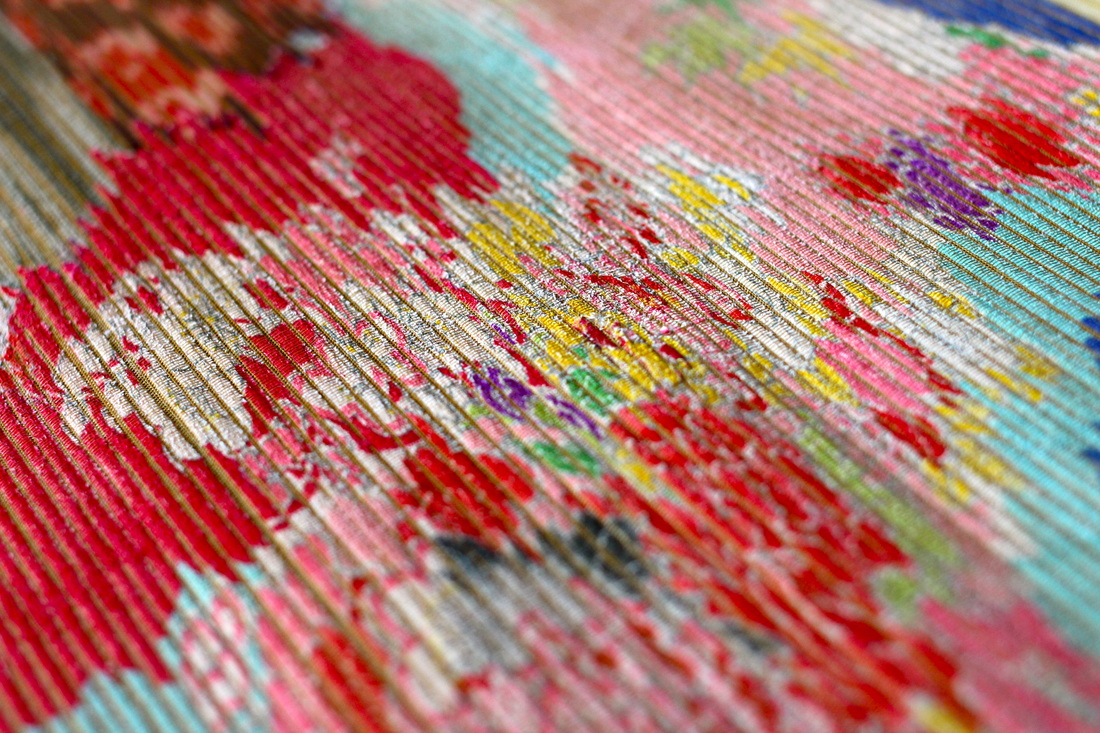
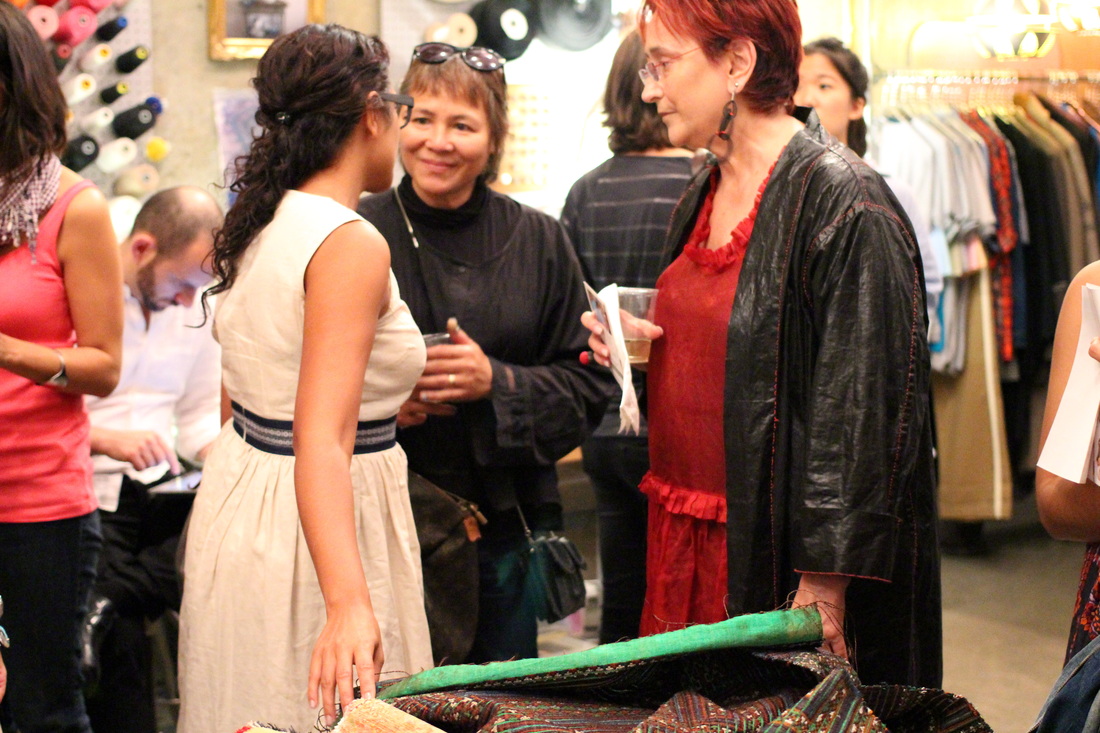
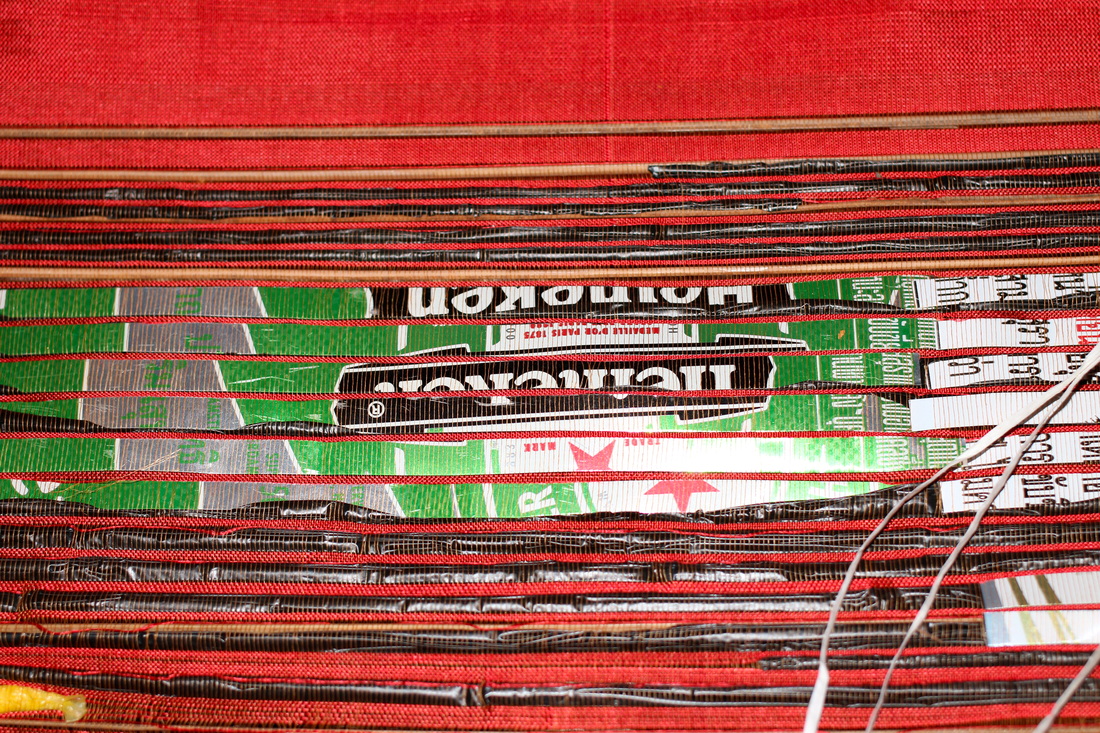

 RSS Feed
RSS Feed
